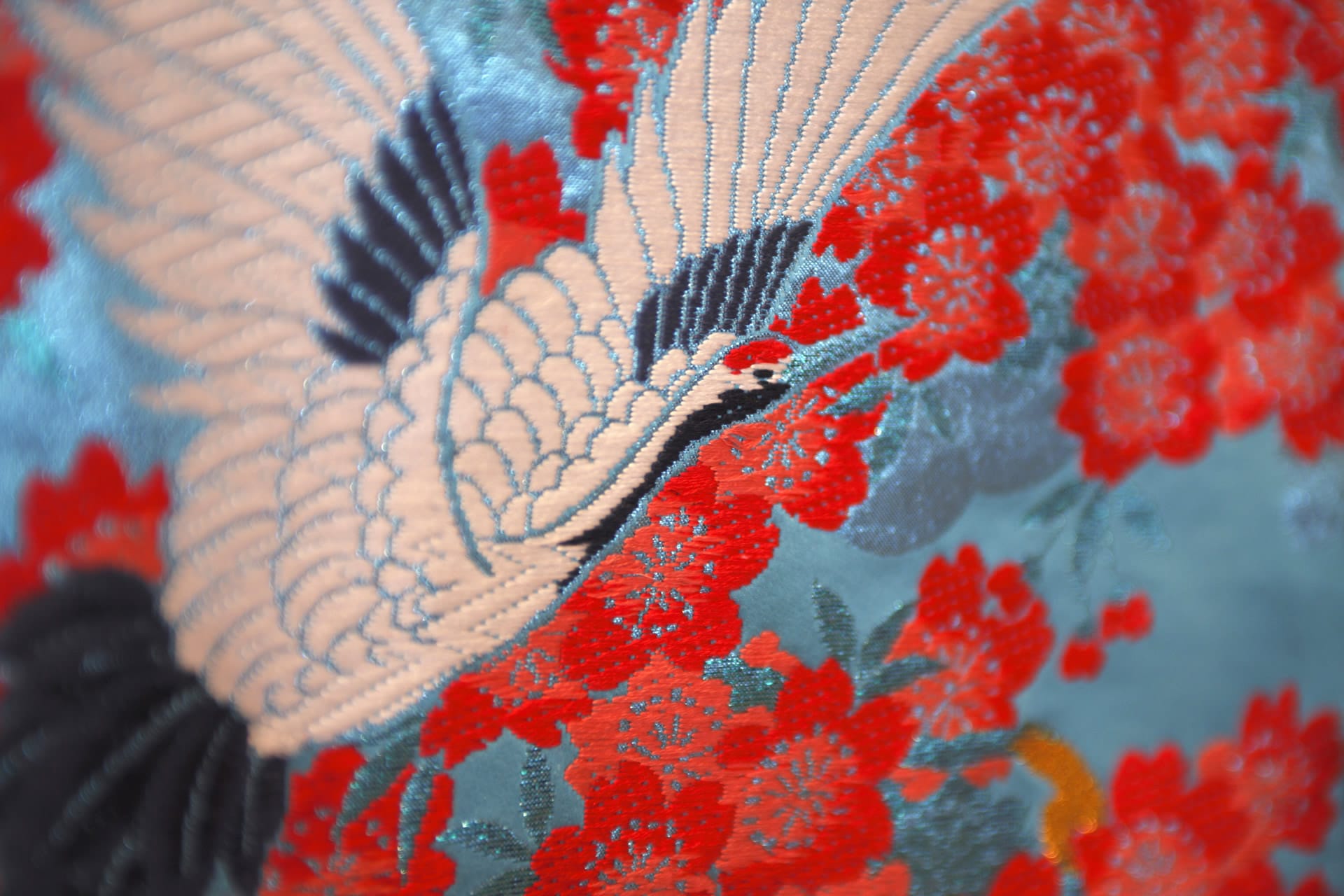Companionship
Or, making memories with my daughter in Japan.

Have you read Cold Enough for Snow? This beautiful book was written by Jessica Au and was published in 2022. It won all sorts of literary prizes including the Novel Prize in 2022, and the Prime Minister’s Literary Award for Fiction and the Victorian Premier’s Literary Award in 2023. It was also shortlisted for the Miles Franklin Award in 2023. It’s not surprising that it has been so widely recognised: the writing is exquisite.
The book tells a very simple story of a young woman travelling to Japan with her mother in October, just at the end of Autumn. In quiet, precise prose, Au captures the immediacy of their experience as travellers but also takes deep insights into her own interior world. Au does not only write about Japan but her writing embodies the Japanese sensibility, a respect for time, art and craft.
Here’s a snippet. In it, the daughter admires some fabrics in a museum:
Looking at the translucency of the overlapping dyes reminded me of looking upwards through a canopy of leaves. They reminded me of the seasons and, in their bare, visible threads, of something lovely and honest that had now been forgotten, a thing we could only look at but no longer live.
I travelled to Japan with my daughter this February and, in doing so, I lived the opposite of Au’s story: I was the older one, the mother, the one that needed looking out for. My daughter speaks fluent Japanese and I only know a couple of words and phrases, so the power dynamic was well established before we even left home.
Travelling with my daughter revealed all my weaknesses. I snore (it’s true, she recorded me). And I struggle to hear her when she speaks quietly, which on this journey she did frequently, perhaps because she didn’t want to attract attention. I could see her frustration with me and my foibles, even though she tried to hide it, and my oldness turned into a growing sense of shame. I empathise with Au’s mother. I know what it is to be an individual in Japan, desiring and thinking and experiencing joys and discomforts all of my own, while my daughter skims youthfully, bouncily almost, through the trip. This is quite possibly a comeuppance for all my arrogance in my own bouncy youth.
There were many times on the trip where I was left out of conversations, made redundant. I tried to follow, paying attention to inflection and gesture, sometimes succeeding, mostly failing. My daughter was generous with her translations but there were times when the dialogue between her and our companions flowed so beautifully, it was obvious that it would take too long to stop and explain it to me. So I sat back and listened to her speak, proud of her progress and her confidence but nursing my redundancy.
Like Au and her mother, my daughter and I visited museums and temples, absorbing art and history but not quite agreeing on what mattered most. Perhaps my daughter wanted me to understand things more deeply, perhaps I wanted things to be lighter, easier to consume so I could effortlessly move on to the next thing and the next.
Regardless of our differences in age and demeanor, the trip brought my daughter and I closer. I revelled in her companionship and built an enormous store of memories to treasure as both of us get older.
Au’s character was more ambivalent about her relationship with her mother in Cold Enough for Snow. But the act of writing the book was as generous as anyone could be in documenting a relationship, of holding on to something important. I believe that Au’s book is timeless and that means her store of memories will live on, making that fictional relationship live ever on.
Do consider reading this marvellous book. It’s an example of perfection in recent Australian literature. And it’s a gentle reminder of Japan if you’ve been there before, or a gentle nudge to visit that beautiful country if you haven’t already.

